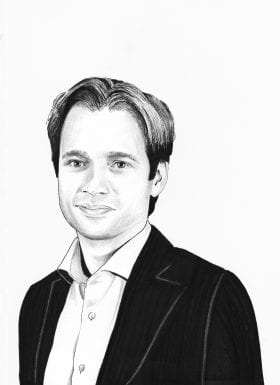-
Ammodo Science
Award for groundbreaking research2024 -
Ammodo Science Award
The Ammodo Science Award for groundbreaking research is intended to stimulate potentially groundbreaking research. Such research is usually the result of team work, and for that reason this Award is for research being carried out by a group of researchers working together, and is intended to recognise the contribution of every member of the group. The Award is presented every two years in four scientific domains: Biomedical Sciences, Humanities, Natural Sciences and Social Sciences.
-
Nomination & Selection
Each edition, the Ammodo Science Award for groundbreaking research includes a cash prize of 1,600,000 euros for each of the science domains Natural Sciences and Biomedical Sciences and a cash prize of 800,000 euros for each of the science domains Humanities and Social Sciences. The rectors of the fourteen Dutch universities affiliated to Universities of The Netherlands (UNL) may nominate a maximum of one research project per scientific domain.
-
Winners
The Ammodo Science Award for groundbreaking research focuses on potentially groundbreaking research and ensures that all researchers involved in the winning project are recognised and rewarded.
Frank van Tubergen
Laureate Social Sciences 2015

Frank van Tubergen (1976) studied Sociology and Philosophy in Nijmegen and was awarded his PhD in Sociology by Utrecht University. He has been the Theoretical and Empirical Sociology Professor there since 2009. In addition to an Ammodo KNAW Award he has received both a NWO Veni and a Vidi grant from the European Research Framework Programme. Since 2011 he has been a fellow of the European Academy of Sociology and alumnus of the Young KNAW.
WebsiteResearch focus
Frank van Tubergen researches the mechanisms underlying complex social phenomena such as segregation and social inequality.
Sociology to separate fact from fable
Whether it is migration, religion, discrimination or social inequality – society today is full of pressing issues, and there is no shortage of opinions about causes and solutions.
As a sociologist, van Tubergen is trying to slice through hastily formed opinions using science. He looks for bare facts, causes, consequences and possible universal mechanisms underlying the biggest issues of our time.
He systematizes, measures, analyses, forms and tests theories to identify such mechanisms. He collects and compares data from different countries, conducting laboratory experiments and population studies and using existing administrative records. Moreover, he tests his observations using a model he himself developed. He often finds that superficial observations rarely survive thorough scientific analysis.
As a sociologist, he sees no instance of “multicultural drama”; children from migrant families are on average making social-economic progress and young Moroccan men are indeed overrepresented in crime, but that can be explained scientifically based on socio-economic factors, family size and peer pressure more satisfactorily than because of their ethnic background.
Van Tubergen: “Within every society groups form along racial, ethnic or religious lines, or lines associated with social class. This group identity increases if people experience more positive connections within the group than outside the group. The human tendency to form groups has been studied in many different situations: school children choosing friends, adolescents and adults choosing partners, immigrants searching for a social network. But most of what we know about the causes of group formation is to do with people who come into physical contact with each other. Our modern society means there is an increasing amount of interaction with people we have never met. People get to know each other online, via dating sites, social networks, blogs and discussion groups. In the digital society new boundaries are set between new groups. The Ammodo KNAW Award has allowed me to research the development of group boundaries in a digital world, in particular along ethnic-religious lines. It is quite possible that online group formation will become even more important that group formation with people we actually meet.”